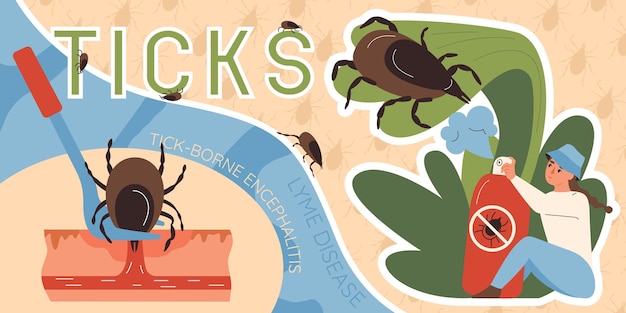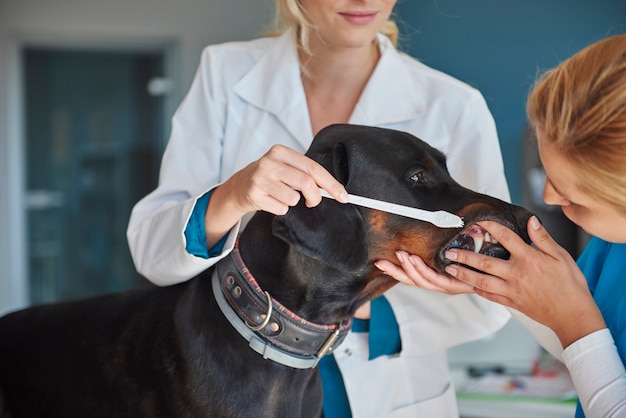September Pet Safety: Transitioning From Summer to Fall in Long Beach


September Pet Safety: Transitioning From Summer to Fall in Long Beach
As the calendar turns to September in Long Beach, many pet owners find themselves caught between lingering summer heat and the first hints of cooler, autumn weather. This time of year brings both relief and new challenges for pets and their families. Whether you are concerned about leftover summer risks or preparing for the changing routines fall brings, September is a pivotal month for pet safety. At Pet Lovers Animal Hospital Long Beach, located at 5211 Atlantic Ave, Long Beach, CA 90805, our team of veterinarians is committed to helping pet families in Long Beach and surrounding communities navigate this seasonal transition with confidence.
In this guide, we will explore September pet safety tips tailored to the unique climate and lifestyle of Long Beach. You will learn how to manage your pet’s exposure to lingering heat, adapt routines for shorter days, maintain preventive care, and recognize seasonal health risks before they escalate. If you are searching for comprehensive pet care Long Beach CA, our approach is rooted in smart, compassionate care that prioritizes your pet’s wellbeing and your peace of mind. We will also discuss the importance of scheduling a wellness examination this season to keep your furry companion healthy as the weather shifts. For those looking for a "vet near me" who understands the local environment and seasonal needs, our veterinary professionals are here to support you every step of the way.
Recognizing September Pet Safety Risks in Long Beach
The transition from summer to fall in Long Beach can be gradual, which means pets may still face many hazards associated with warmer months even as daylight hours begin to decrease. Understanding what to watch for during this period is the first step in keeping your pet safe.
Signs Your Pet May Be Struggling With Seasonal Changes
Many pet owners notice their pets acting differently as the season changes. Common concerns in September include excessive panting, lethargy after walks, and sudden changes in appetite or behavior. Symptoms of heat-related stress may persist, especially if pets are exercising outdoors during unexpected late-season heat waves. Other warning signs are increased scratching, irritated skin, or sneezing, which can signal that fall allergens are starting to affect sensitive pets. Some pets may also become restless or anxious as their routines shift with the shorter days and busier family schedules.
Why September Brings Unique Challenges for Pet Care in Long Beach CA
Long Beach’s coastal climate often means that September can still feel like summer. High temperatures are not uncommon, and humidity can fluctuate, creating challenging conditions for pets. Additionally, as families return to school routines and spend more time indoors, pets may face less exercise, less mental stimulation, and more time alone. These shifts can lead to behavioral changes or even new health problems. On top of that, fall allergens such as mold, pollen, and dust mites often peak as leaves begin to fall and windows are opened for fresh air.
Fall also brings changes in outdoor hazards. Mushrooms, which can be toxic to pets, often appear after late summer rains. Holiday decorations and festive foods may become more common in the home and backyard, posing additional risks for curious pets. Being aware of these seasonal changes helps you anticipate problems before they arise, ensuring that your pet’s health and happiness remain top priorities.
Managing Lingering Summer Heat and New Fall Allergens
Because September weather in Long Beach can be unpredictable, pets need ongoing protection from both summer and fall risks. Managing heat exposure and addressing allergies are two of the most important aspects of September pet safety.
Protecting Your Pet From Late-Season Heat
Even as fall approaches, temperatures can spike unexpectedly. Key symptoms of heat stress in pets include heavy panting, drooling, glazed eyes, or collapse, especially after exercise. Other warning signs are vomiting, diarrhea, or unsteady movements. If you notice any of these symptoms, it is essential to move your pet to a cooler area immediately and offer fresh water. Avoid walks or outdoor play during peak heat hours, which are usually mid-afternoon.
For pets with darker coats, flat faces, or underlying health conditions, the risk of overheating is even greater. Always provide shaded, cool resting areas and never leave your pet in a parked car, even for a few minutes. Local parks and beaches may still be crowded and warm, so consider early morning or late evening outings when temperatures are milder.
Addressing Fall Allergens and Skin Health
As fall allergens emerge, pets may experience increased itching, red or inflamed skin, watery eyes, or persistent sneezing. If your pet is scratching more than usual or develops hot spots, it may be a sign of seasonal allergies. Additional signs include ear infections or changes in coat quality. Managing these symptoms often involves frequent bathing with veterinarian-recommended shampoos, wiping your pet’s paws after walks, and monitoring for any skin irregularities.
For ongoing issues, we recommend discussing allergy testing services or exploring veterinary dermatology services with our team of veterinarians. Early intervention can prevent more serious complications and help your pet feel comfortable throughout the season. Allergies can also be managed with diet adjustments, prescribed medications, or environmental changes as recommended by our veterinary professionals.
Adjusting Your Pet’s Routine for Shorter Days and Cooler Evenings
With the arrival of fall, pet routines often change alongside family schedules. Adjusting your pet’s daily habits helps maintain their physical and emotional health during this transitional month.
Safely Modifying Exercise Schedules
Daylight hours decrease in September, which means evening walks may happen in lower light conditions. Safety tips for nighttime outings include choosing well-lit paths, using reflective collars or leashes, and being aware of increased wildlife activity as animals prepare for cooler months. Additionally, early mornings may be cooler, offering a better window for exercise without the risk of overheating.
Shorter days may also mean less time outdoors for some pets. Keep your pet engaged with indoor play, training games, or puzzle toys to prevent boredom and behavioral issues. If your pet seems restless or anxious as routines shift, gradual changes and consistent schedules can help minimize stress.
Supporting Pets as School and Work Schedules Resume
September often marks the return of regular work and school routines in many households. Pets that have enjoyed summer companionship may now spend more time alone, which can lead to separation anxiety or destructive behaviors. Warning signs of stress include excessive barking, chewing, or accidents indoors. Providing interactive toys, comfort items, or background noise like soft music can help ease the transition. For pets struggling with anxiety, our veterinary professionals can provide guidance and support during your next visit.
The Importance of Preventive Veterinary Care During Seasonal Transitions
Preventive care remains the cornerstone of pet health, especially during times of change. Scheduling a wellness examination in September helps you catch early signs of illness, update vaccinations, and discuss any concerns you have about your pet’s adjustment to fall.
Why September Is the Perfect Time for a Wellness Check
September is an ideal month to assess your pet’s current health and prepare for the months ahead. During a wellness examination, our veterinarians will evaluate your pet’s weight, dental health, skin and coat condition, and overall wellbeing. This is also the perfect opportunity to review your pet’s vaccination status and discuss any seasonal risks that are relevant to pet care Long Beach CA, such as local outbreaks of vector-borne diseases or region-specific allergens.
Our comprehensive approach ensures that any developing conditions are addressed early, which can save both stress and expense in the future. If you have noticed changes in your pet’s behavior, appetite, or energy level since the summer, sharing these observations with our veterinary team can lead to tailored advice and care.
Keeping Up With Vaccinations and Parasite Prevention
While many pet owners associate vaccinations with spring or summer, maintaining protection year-round is crucial. Fleas, ticks, and mosquitoes can remain active in Long Beach well into the fall, so ongoing parasite prevention is recommended. Our pet vaccination services are designed to keep your pet’s immune system strong and reduce infection risk regardless of the season.
If you are ever unsure about which vaccines or parasite preventives your pet needs during the fall, scheduling a visit with our veterinary professionals is the best way to get personalized guidance based on your pet’s lifestyle and the local environment.
Home Strategies for September Pet Safety
Pet owners can take several practical steps at home to ensure their companions remain healthy and happy as summer fades into fall.
Creating a Comfortable Environment
As temperatures fluctuate, make sure your pet has access to both warm and cool areas in your home. For pets with arthritis or mobility issues, cooler weather can exacerbate discomfort, so providing soft bedding and minimizing exposure to cold surfaces is important. Monitoring water bowls and ensuring they remain clean and filled is equally vital, as hydration needs may change with activity and weather.
Additionally, be cautious with autumn decorations or seasonal foods. Many items, such as chocolate, grapes, and certain nuts, are toxic to pets. Halloween candies and fall plants like chrysanthemums or pumpkins should be kept out of reach. Mushrooms that appear in yards or parks can be particularly dangerous, so supervise outdoor play and remove any unidentified fungi immediately.
Routine Grooming and Oral Care
Grooming schedules may need adjustment as shedding patterns change. Regular brushing helps manage loose hair and reduces matting, while also providing an opportunity to check for skin issues, parasites, or injuries. Dental health is another key component of September pet safety. Signs of dental trouble include bad breath, difficulty eating, or visible tartar. Scheduling a pet dental cleaning with our veterinary professionals not only improves oral health but also supports your pet’s overall wellbeing.
When to Seek Veterinary Care for Seasonal Concerns
Knowing when to call your veterinarian is crucial as you navigate seasonal transitions with your pet. While many issues can be managed at home, certain symptoms require immediate professional attention.
Signs That Warrant a Veterinary Visit
Contact our veterinary team if your pet experiences persistent vomiting, diarrhea, difficulty breathing, sudden lethargy, or collapse. Other urgent concerns include excessive itching that leads to open sores, unhealed wounds, or any signs of pain. If your pet ingests a toxic substance, such as a mushroom or human medication, call us right away.
For ongoing issues such as mild allergy symptoms, shifting appetite, or behavioral changes, scheduling an appointment allows our veterinarians to assess your pet’s health in depth and recommend tailored treatment or management strategies. Our team provides compassionate, comprehensive care that addresses the unique needs of pets in Long Beach and surrounding communities.
September Pet Safety: A Commitment to Year-Round Wellness
September pet safety starts with awareness and continues with proactive care. By understanding the unique risks of the season, adapting routines, and keeping up with preventive care, you can help your pet enjoy a smooth and healthy transition into fall. At Pet Lovers Animal Hospital Long Beach, our veterinary professionals are dedicated to supporting your pet’s wellbeing every month of the year.
If you need guidance on seasonal care, or if you are searching for the best veterinarian near me to help your pet thrive in pet care Long Beach CA, we are here for you. Schedule an appointment for a wellness examination, discuss allergy concerns, or inquire about dental services by calling (562) 349-0000 or visiting us at 5211 Atlantic Ave, Long Beach, CA 90805. Our compassionate approach and smart, budget-friendly care ensure your pet is in the best hands this September and beyond.
For more information about our preventive services or to learn about wellness exams for your furry family member, explore our comprehensive pet exam options or reach out with your questions. Your pet’s health and happiness are always our top priorities.
Medical Disclaimer: The information in this blog is for educational purposes only and should not be used as a substitute for professional veterinary care. If you have concerns about your pet’s health or notice any unusual symptoms, please contact our veterinary team for personalized advice and care.


















